Content from the Brookings Institution India Center is now archived. After seven years of an impactful partnership, as of September 11, 2020, Brookings India is now the Centre for Social and Economic Progress, an independent public policy institution based in India.
On March 13, President Trump nominated CIA Director Mike Pompeo to become the next U.S. secretary of state. This Thursday, Pompeo will go before the Senate Committee on Foreign Relations for his nomination hearing. What should the committee members ask? Brookings foreign policy experts offer their ideas below.
ASIA
Richard Bush, Co-Director of the Center for East Asia Policy Studies and Senior Fellow in the John L. Thornton China Center: What credible assurance can you give this committee that the administration will not use Taiwan as a bargaining chip as it conducts relations with China? Separately, can you give us a progress report on preparations—logistical and substantive—for the Trump-Kim meeting, as well as explain the basis for the administration’s apparent belief that North Korea would be willing to terminate its nuclear program in a complete and verifiable way through negotiations? Are you worried that there is a gap growing between the United States and South Korea on how to address the challenge posed by North Korea?
Tarun Chhabra, Fellow in the Project on International Order and Strategy: The administration’s National Defense Strategy, released earlier this year, says that “inter-state strategic competition,” particularly with China and Russia, and “not terrorism, is now the primary concern in U.S. national security.” What would you do as secretary of state to execute this strategic shift, and, more specifically, what should the United States’ answer be to China’s Belt and Road initiative, which is set to invest more than $1 trillion in infrastructure across more than 60 countries on three continents?
Ryan Hass, David M. Rubenstein Fellow in the Center for East Asia Policy Studies and the John L. Thornton China Center: Do you believe adjustments to the longstanding U.S. policy on Taiwan are warranted by growing pressure from the mainland on Taiwan? If so, where would you recommend adjusting course, and what objective would you seek for such adjustments to achieve? Separately, what are the top challenges and opportunities for the United States to advance its interests in its relationship with China?
Dhruva Jaishankar, Fellow in Foreign Policy and Brookings India: Do you consider China a strategic competitor to the United States? If so, what commercial and security strategies would best allow the United States to compete with China?
Tanvi Madan, Director of the India Project and Fellow in the Project on International Order and Strategy: What role do you envision for India in the free and open Indo-Pacific strategy? Are there areas you would like to see it do more?
Will Moreland, Senior Research Assistant and Associate Fellow with the Project on International Order and Strategy: Secretary Tillerson made headlines in his nomination hearing on Chinese island building in the South China Sea by seeming to imply the United States would block access to those islands by force. Earlier this week it was reported that China is deploying military communications jamming equipment to that area; how should the United States respond to this development?
Middle East
Katy Collin, Post-Doctoral Fellow in the Foreign Policy program: What is your view of the multilateral peacemaking process in Syria? Do you support the United Nations efforts to establish humanitarian ceasefires and its work toward a political settlement?
Martin Indyk, John C. Whitehead Distinguished Fellow in International Diplomacy: Every secretary of state, with the exception of Secretary Tillerson, has taken the lead in promoting Middle East peace. Will you take the lead if you are confirmed as secretary of state? Separately, Israel and Iran are engaged in direct conflict in Syria. If confirmed, what will you do to head off a full-blown conflict there?
Suzanne Maloney, Deputy Director of the Foreign Policy program and Senior Fellow in the Center for Middle East Policy: Since your time in Congress, you’ve advocated that the United States seek to change not just the behavior of the Iranian government, but the nature of the government itself. How do you intend to promote regime change in the Islamic Republic? Would you endorse American support to or cooperation with the Mojahideen-e Khalq, an organization that was allied with Saddam Hussein and that was designated as a terrorist organization for a number of years by both the State Department and under U.S. Executive Order 13224? Separately, you have also been a persistent critic of the 2015 nuclear deal with Iran, Joint Comprehensive Plan of Action (JCPOA), in part because of the limited duration of its restrictions on Iran’s nuclear programs. President Trump has threatened to walk away from the deal unless the European parties agree to address this and other issues with the deal. Do you believe this type of brinkmanship is an effective tool of diplomacy for persuading with our most important strategic partners to revise the outcome of more than a decade of negotiations? And if President Trump follows through on his threat, do you believe that Americans and the world are better off with no curbs whatsoever on Iran’s nuclear program?
Christopher Meserole, Fellow in the Center for Middle East Policy: President Trump has close ties with several Middle Eastern autocrats, but his rhetoric and policies—most notably his proposed “Muslim ban”—have alienated Muslim communities around the world. As congressman you also made controversial remarks about Islam and Muslims. As secretary of state, what will your message be to Muslim populations around the world? How will you engage not just with the leaders of our Muslim-majority allies, but their populations themselves?
Bruce Riedel, Senior Fellow in the Center for Middle East Policy and Director of the Intelligence Project: The Trump administration has rightly condemned Pakistan for its support for terrorist groups like the Haqqani network and Lashkar-e-Taiba. As secretary of state, will you designate Pakistan a state sponsor of terrorism and impose sanctions?
Amanda Sloat, Robert Bosch Senior Fellow in the Center on the United States and Europe: What are the administration’s main policy goals in Syria? Given President Trump’s recent statements regarding his desire to withdraw U.S. troops soon, do the objectives laid out by former Secretary Tillerson in his January speech at Stanford—including countering Iran, ensuring the safe return of refugees, supporting Geneva peace talks, and ridding the country of WMD—still reflect the administration’s priorities? If not, what are U.S. priorities in Syria and how will you achieve them? Separately, Turkey has long objected to U.S. military cooperation with the YPG in Syria given its links to the PKK, which the United States has designated a terrorist organization. Turkish President Erdoğan has threatened to expand Operation Olive Branch from Afrin to Manbij, where U.S. forces are based along with U.S.-backed YPG forces. If confirmed, what steps will you take to prevent direct conflict with our NATO ally? Can the United States play a role in helping resolve the related conflict between Turkey and the PKK? The YPG currently controls significant territory in northeastern Syria; do you believe the United States should support an autonomous Kurdish region?
Europe
Daniel Byman, Senior Fellow in the Center for Middle East Policy: As CIA director, you affirmed Russia’s meddling in the 2016 U.S. election. As secretary of state, what would you do about the past meddling and how would you try to stop Russia in the future?
James Kirchick, Visiting Fellow in the Center on the United States and Europe and the Project on International Order and Strategy: The president has repeatedly said that he wants to “get along with Russia.” Why isn’t the United States getting along with Russia presently and what needs to change for this to happen?
Kemal Kirişci, TÜSİAD Senior Fellow in the Center on the United States and Europe and Director of the Turkey Project: There is concern that Turkey is slipping away from the West and its democracy is receding. The United States has a long record of efforts to anchor Turkey in the West and encourage it to reform. Would you consider any new initiative to reengage Turkey to reform and rebuild its relations with the transatlantic community? If yes, what forms would such initiatives take? Are you considering any measures to urge an improvement in the state of the rule of law and democratic governance in Turkey? Have you considered what losing Turkey could mean for the future of the rule based order?
Alina Polyakova, David M. Rubenstein Fellow in the Center on the United States and Europe: The administration had taken steps to impose costs on Russia, but the former National Security Advisor H.R. McMaster said in his farewell address that the United States had failed to impose costs on Russia. As secretary of state, what would be the U.S. strategy to deter Russia, especially in the non-conventional space? What would be the key tenets of such a strategy that you would seek to pursue?
Constanze Stelzenmüller, Robert Bosch Senior Fellow in the Center on the United States and Europe: What are your expectations of European allies with regard to their role in NATO? How do you answer their concerns about the future of the Iran nuclear deal (JCPOA) and heightened instability in the Middle East more generally—particularly given that negative consequences (e.g. refugee flows, terrorism) will be sooner felt in Europe than in the United States? Do you think the existence of the European Union is in the considered national interest of the United States?
Energy and Climate
Samantha Gross, Fellow in the Cross-Brookings Initiative on Energy and Climate: What are the geopolitical implications of growing U.S. oil and liquefied natural gas (LNG) exports, particularly in Europe and Asia? How does this change the balance of power with Russia and in the Middle East?
David G. Victor, Co-Chair of the Cross-Brookings Initiative on Energy and Climate: Nearly every other major country has criticized the United States for leaving the Paris Agreement. Are you worried about that, and what is your plan for fixing the problem?
international security, global issues, and State Department reform
Jessica Brandt, Fellow in the Foreign Policy program: President Trump capped refugee admissions at 45,000 people this year—the lowest number set by any White House since the practice began in 1980. According to State Department data, the United States is on track to admit less than half that number. What is your view of the current pace of admissions? What do you see as the consequences of this policy for our relationship with our allies in Europe and our partners in the Middle East?
Katy Collin, Post-Doctoral Fellow in the Foreign Policy program: In your view, should the United States champion human rights and democracy promotion as a core function of its mission statement? And, if so, could you clarify whether you believe that human rights includes women’s reproductive rights and rights of LGBTQ communities?
Tarun Chhabra, Fellow in the Project on International Order and Strategy: The administration has, to date, provided no nominees for more than 60 senior political appointments at the State Department. This includes more than 30 vacant ambassadorships (U.S. allies and partners South Korea, Turkey, Saudi Arabia, and Qatar among them), four undersecretary positions, and seven assistant secretary positions. Will you commit to the Senate that, if confirmed, the administration will provide nominations for these positions, and that the administration will end its de facto, blanket ban on highly qualified national security nominees who have been barred from public service primarily, if not solely, because they signed the so-called “never Trump” letters?
Will Moreland, Senior Research Assistant and Associate Fellow with the Project on International Order and Strategy: The 2017 National Security Strategy (NSS) emphasizes the return of geopolitical competition and the challenges from “the revisionist powers of China and Russia.” The 2018 National Defense Strategy has outlined how the NSS will guide the Defense Department. What are the top three things the State Department needs to do—or change—to implement the NSS?
Ted Piccone, Senior Fellow in the Project on International Order and Strategy and the Latin America Initiative: History and evidence show that strong democracies are more stable, safer, and better partners for the United States as we confront adversaries around the world. Will you reaffirm the longstanding bipartisan consensus that promoting American and universal values of liberal democracy, human rights, transparency and the rule of law is in our national security interest? Will you ask for the requisite resources to carry out this mission? Separately, our interests in supporting the Cuban people, protecting American citizens, and improving cooperation on a host of security matters in the Caribbean depend on having a scaled-up mission on the ground in Havana. Will you commit to expanding our diplomatic presence there?
Frank Rose, Senior Fellow in Security and Strategy: In your view, what are the most significant security benefits that the New START Treaty provides to the United States? Would you recommend extending the duration of New START by five years as allowed under the terms of the treaty?
Torrey Taussig, Post-Doctoral Fellow in the Center on the United States and Europe: Do you believe that Russia and China’s enhanced collaboration on military, political, and economic interests could evolve into a more unified challenge to the United States and its allies? Second, do you worry that Russia and China will grow closer as a result of deeper tensions and heightened competition with the United States and Europe? If so, what strategy will you pursue to address their increasing potential for cooperation?
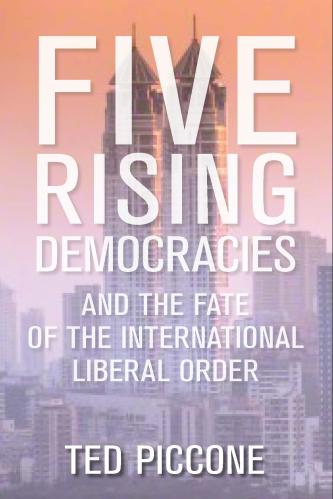
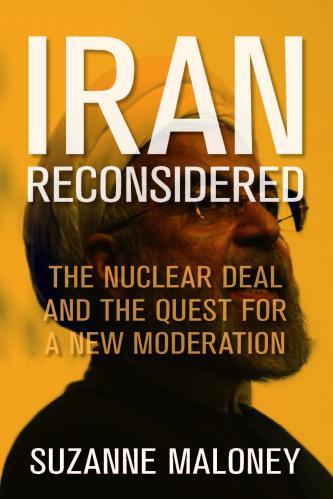
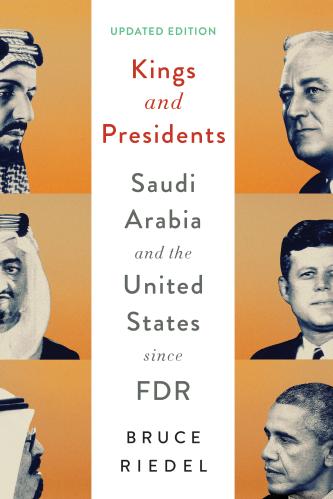
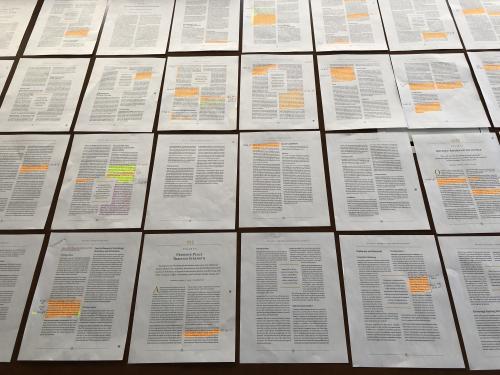
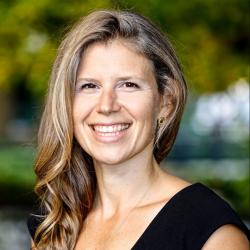


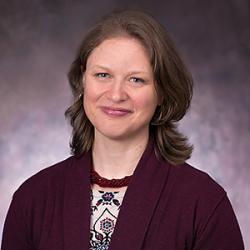


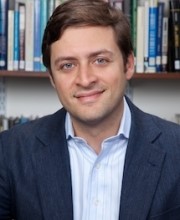

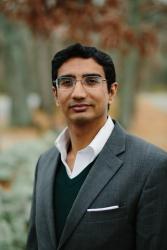
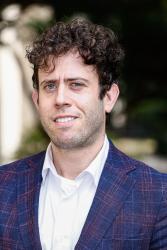
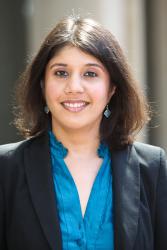


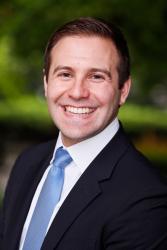

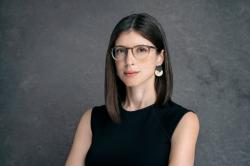

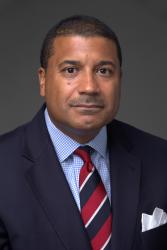
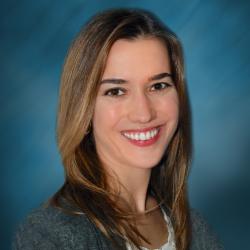

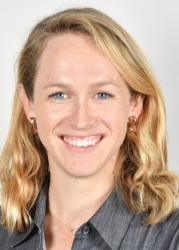
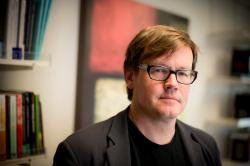




Commentary
What should the Senate ask Secretary of State nominee Mike Pompeo?
Questions from Brookings foreign policy experts
April 11, 2018